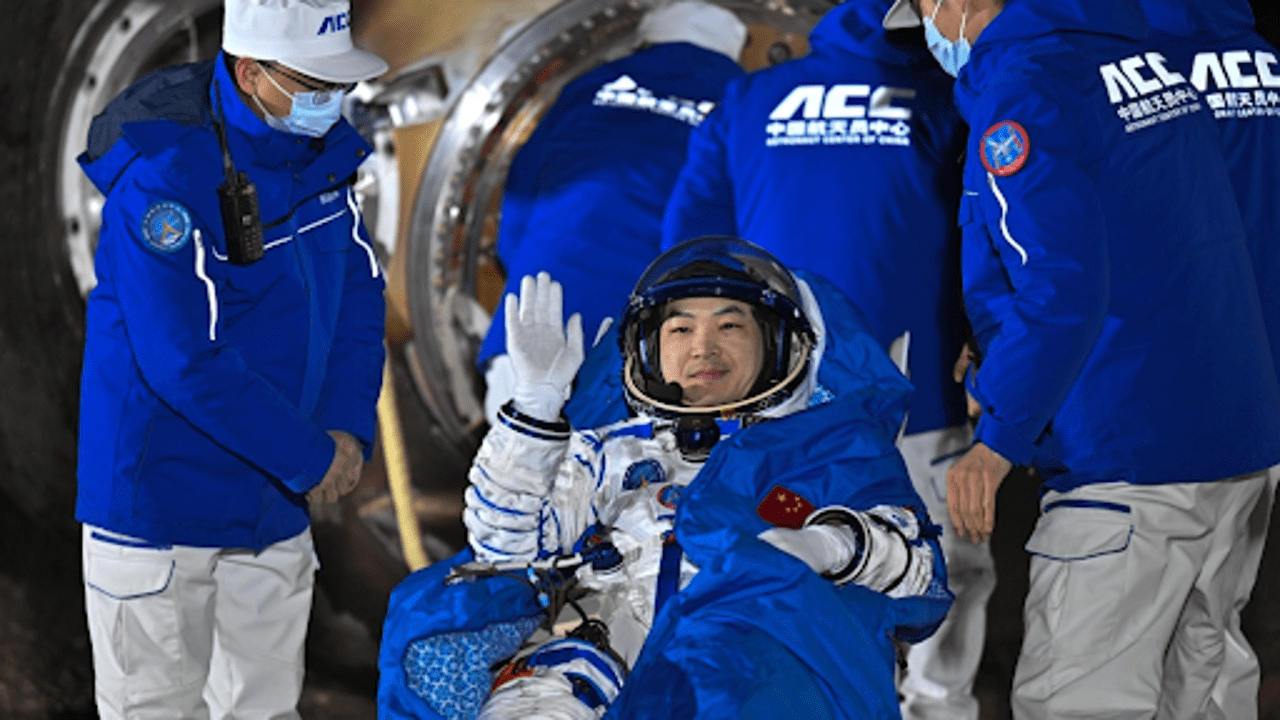
In a photo shared by Xinhua News Agency, astronaut Li Guangsu is seen waving as he is helped out of the Shenzhou-18 capsule following its successful landing at the Dongfeng site in Inner Mongolia, China, on November 4, 2024. AP Photo
Three Chinese astronauts successfully returned to Earth on Monday after spending six months aboard the Tiangong space station. This mission marks another significant step in China's quest to establish itself as a leader in global space exploration. The astronauts landed in a remote area of Inner Mongolia, with their capsule descending safely under parachutes during the nighttime. They touched down at 1:24 a.m., where a Chinese flag stood proudly nearby, fluttering in the wind as they emerged from their capsule.
China’s space program has made impressive strides in recent years, including returning lunar rocks and landing a rover on Mars. The country is setting ambitious goals, aiming to send astronauts to the moon by 2030, which would make it only the second nation, after the United States, to achieve this feat. The returning crew welcomed a new three-member team last week to continue operations on the space station. This new crew, consisting of one woman and two men, is set to engage in various activities, including conducting scientific experiments, performing spacewalks, and installing equipment designed to shield the station from space debris.
A spokesperson from the space agency highlighted some challenges faced by Tiangong. The station has had to perform several maneuvers to steer clear of debris and had experienced partial power loss when a piece of debris struck its solar panel cables, as reported by the state-run Xinhua News Agency.
Like many countries involved in space activities, China is also responsible for creating space debris. This includes an incident in August when a rocket stage reportedly broke apart during the launch of satellites intended for a global internet service akin to Elon Musk's Starlink.
The Tiangong space station, which translates to "Heavenly Palace," was completed two years ago and has since been hosting Chinese astronauts exclusively. However, discussions are underway about including astronauts from other nations in future missions. This move would mark a significant shift, as astronauts from various countries have visited the International Space Station, but China has been excluded from that program largely due to U.S. concerns regarding military influences within its space program.
In a recent announcement, China outlined its intention to become a leader in space science research by 2050. This ambitious plan is part of its broader strategy to advance its capabilities in space exploration while further establishing its presence on the global stage. With each successful mission, China is not only expanding its reach in space but also positioning itself as a major player in international space activities.
As China continues to push the boundaries of its space ambitions, the recent return of the astronauts highlights the nation’s commitment to advancing its capabilities and potentially fostering international collaboration in space exploration.















